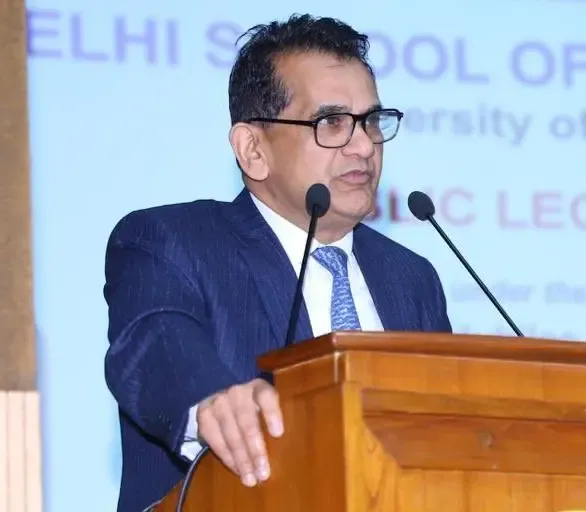India's Crucial Role in Global Economic Growth as Global South Gains Prominence

Synopsis
Key Takeaways
- India's growth is crucial in the Global South's economic future.
- Projected to be a USD 30 trillion economy by 2047.
- Significant improvements in financial inclusion for women.
- Focus on green energy and sustainability.
- Structural reforms have transformed India's economy.
New Delhi, Jan 26 (NationPress) As global focus shifts towards the developing nations of the Global South, India's swift advancement is set to be instrumental in influencing the trajectory of the global economy, as stated by Amitabh Kant, G20 Sherpa and former CEO of NITI Aayog.
While speaking at an event held by the Association of Mutual Funds in India (AMFI), Kant remarked, "According to the IMF, between 75-80 percent of economic growth this year will be attributed to the Global South."
He mentioned that India has ascended to become the fifth-largest economy in the world due to economic reforms and substantial investments in infrastructure. Consequently, India is anticipated to outpace Germany and Japan by 2027. Kant asserted that India’s future growth will hinge on ongoing investments in infrastructure, digital innovation, and environmental sustainability, with projections estimating the nation to achieve a USD 30 trillion economy by 2047.
Kant noted that both the IMF and World Bank predict that over the next thirty years, three-fourths of global growth will originate from the Global South, largely fueled by a young and vibrant population. This demographic advantage is expected to significantly contribute to economic growth, contrasting sharply with Europe and America’s aging populations.
He emphasized India’s impressive evolution over the past decade from being classified as one of the "Fragile Five" by the IMF to emerging as a global economic powerhouse.
Kant attributed this remarkable transformation to bold structural reforms, including the introduction of the Goods and Services Tax (GST), the Insolvency and Bankruptcy Code, the Real Estate Regulation and Development Act (RERA), and various measures aimed at enhancing the Ease of Doing Business.
Moreover, he pointed out that in 2016, only 18 percent of Indian women had access to banking services, a figure that has now surged to 91 percent, demonstrating the country’s rapid strides towards promoting financial inclusion.
India is also making considerable headway in green energy initiatives, particularly in the production and distribution of Green Hydrogen, to achieve the country’s decarbonization objectives in combating climate change.










